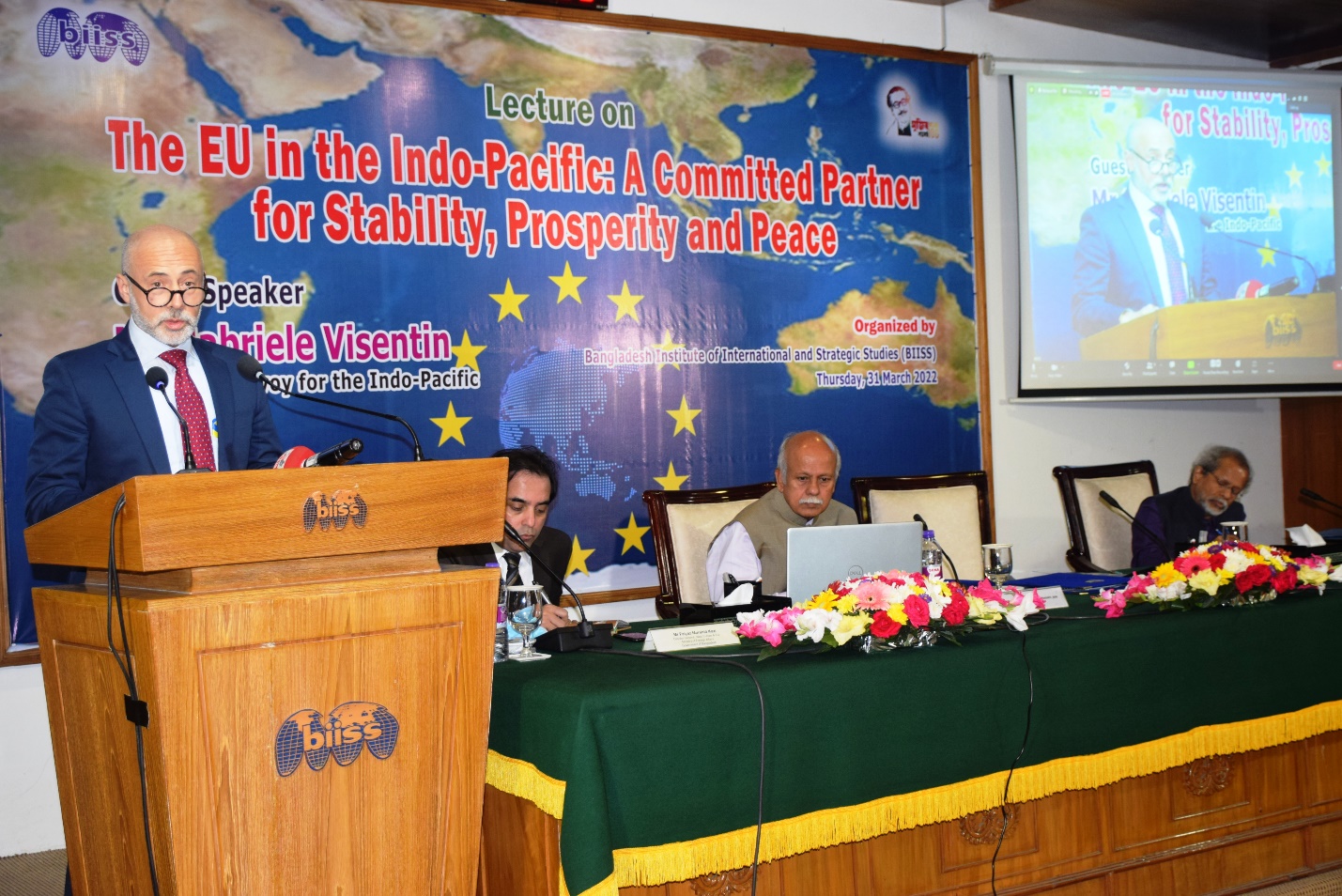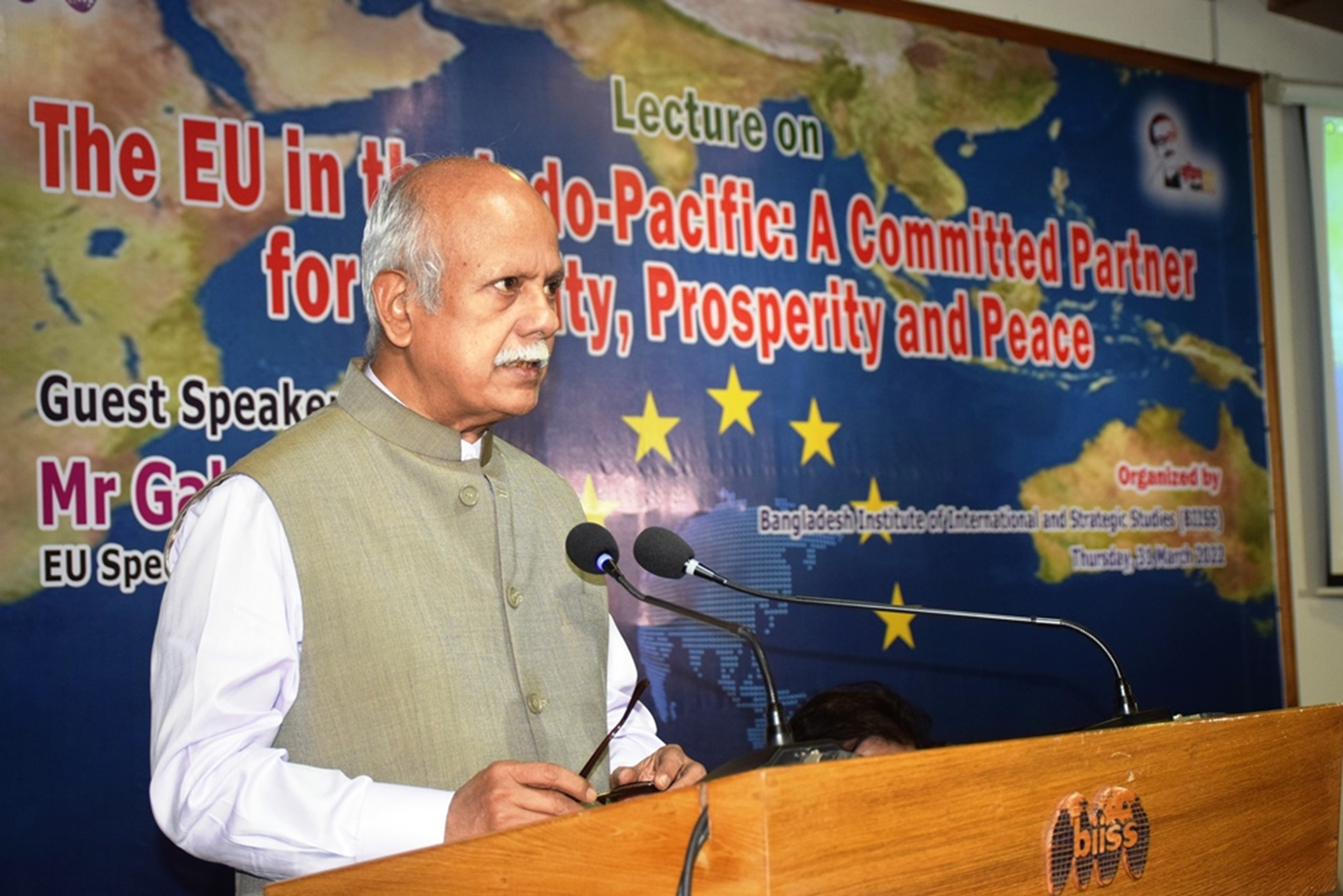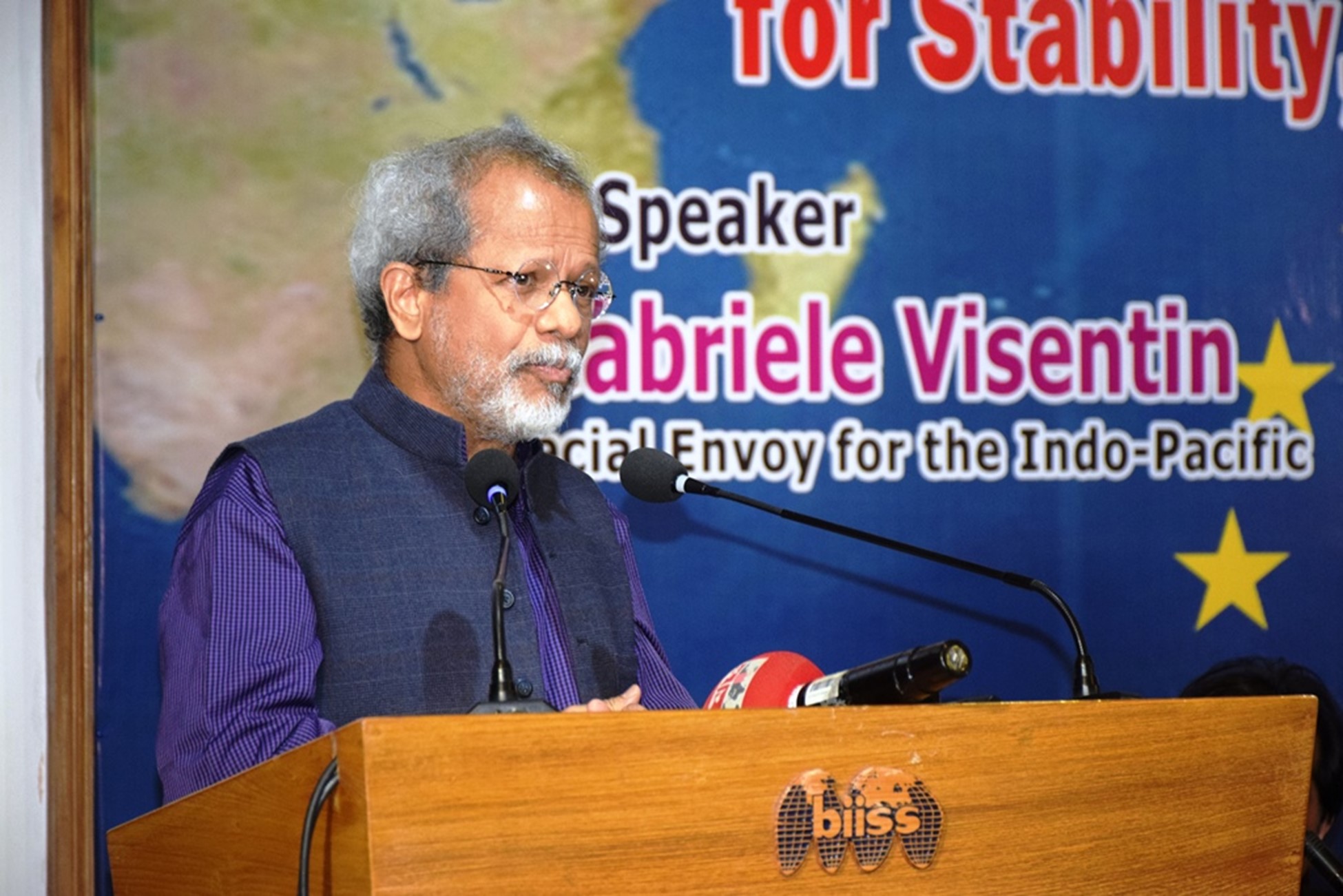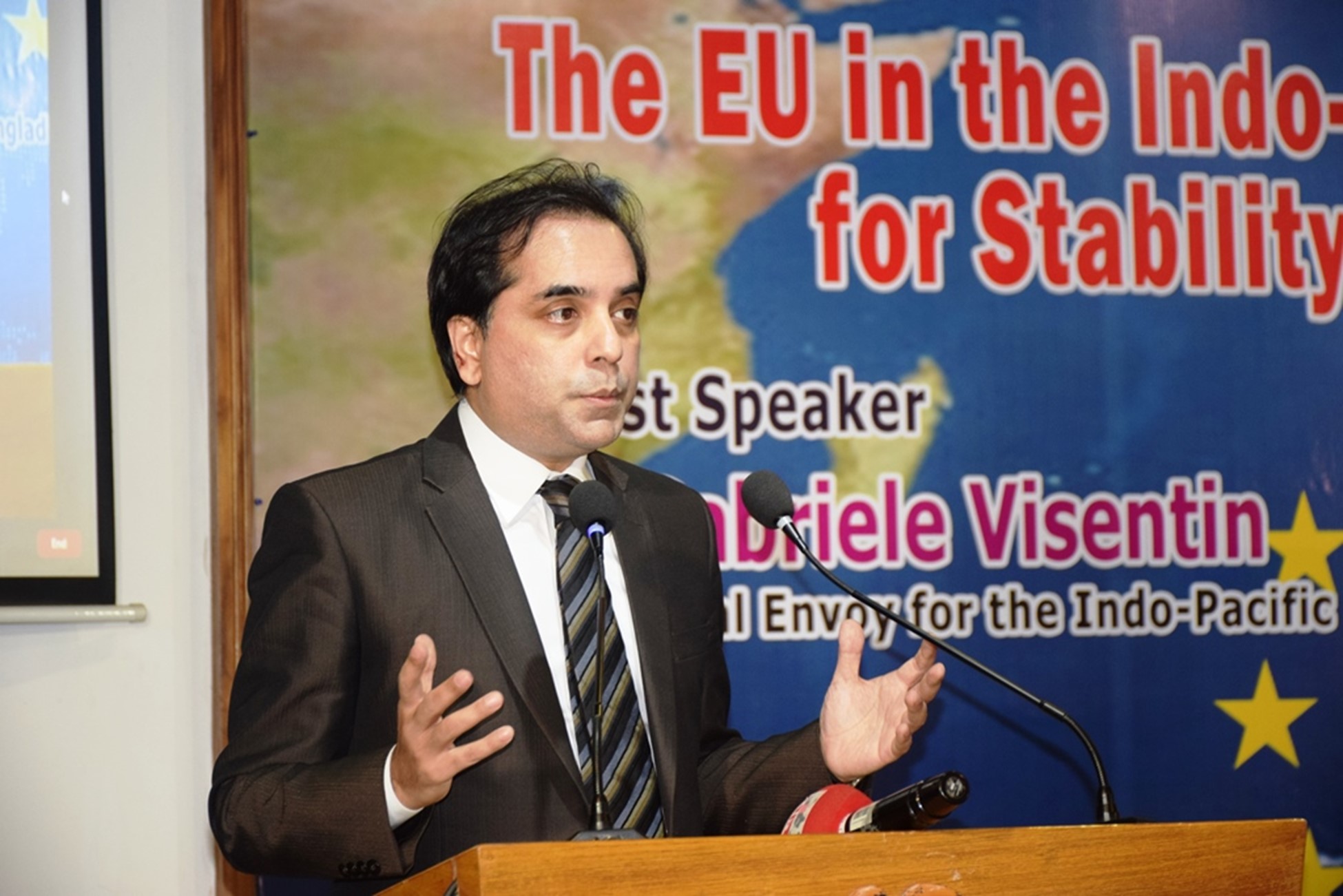Lecture on “The EU in the Indo-Pacific: A Committed Partner for Stability, Prosperity and Peace” on 31 March 2022
DATE: 2022-03-31
Bangladesh Institute of International and Strategic Studies (BIISS) organized a lecture titled “The EU in the Indo-Pacific: A Committed Partner for Stability, Prosperity and Peace” on 31 March 2022 at BIISS Auditorium. Mr. Gabriele Visentin, EU Special Envoy for the Indo-Pacific, was the guest speaker. The lecture was commented upon by two panelists: Mr. Faiyaz Murshid Kazi, Director General, West Europe and EU, Ministry of Foreign Affairs, Government of Bangladesh; and Dr. Imtiaz Ahmed, Professor, Department of International Relations, University of Dhaka. After the lecture and comments by panelists, there was an open discussion session. Ambassador Kazi Imtiaz Hossain, Chairman, BIISS moderated the programme.
At the outset, Ambassador Kazi Imtiaz Hossain, Chairman, BIISS noted that the emerging and intensifying geo-political and geo-strategic competition of major players in the Indo-Pacific region is leading to power politics which, he apprehended, is creating an environment of confrontation instead of collaboration. He added that Bangladesh hopes for a peaceful and collaborative approach to be the guiding force in setting the future partnership agenda in this region.
By defining the concept of the Indo-Pacific from both economic and geopolitical perspective, the first ever the EU special envoy, Mr. Gabriele Visentin, stated that the EU is the resident actor of the Indo-Pacific. In the face of the latest Ukraine war, the special envoy underscored the need of rule-based international order and conveyed the EU’s interest in Bangladesh as key partner in this endeavour. He stressed that the EU’s strategy is all about “cooperation not confrontation”. Thus, this strategy is about scaling up and diversifying political and economic partnership across the Indo-Pacific. For this to happen, the EU wants to uphold international law and multilateralism. He highlighted seven priority areas of EU’s indo-pacific strategy. These are: (a) sustainable and inclusive prosperity, (b) green transition, (c) ocean governance, (d) digital governance and partnerships, (e) connectivity, (f) security and defense, and (g) human security. Then he detailed how the EU is cooperating with Bangladesh in these seven priority areas.
Mr. Faiyaz Murshid Kazi emphasized on Bangladesh’s vision of the Indo-Pacific which envisions the region as free, open, peaceful, secured and most importantly, inclusive. He further mentioned that Bangladesh is alignment with the EU’s approach to the Indo-Pacific as mentioned by Mr. Visentin, which creates opportunity for the country to engage with the EU in various spheres.
Professor Dr. Imtiaz Ahmed pointed out that the world is moving towards a multipolar world and it is impossible to stop this transition. Prior to managing such a world, this reality has to be acknowledged first. He further argued that in terms of civilization, the world has never seen a multipolar world and the re-rise of civilizational countries such as China and India have made this multipolar world different from than Pax-Britannica or bipolar world during the Cold War. In conclusion, he commented that in order to create a “rules-based international order”, given the traumatic history of Europe from the two Great Wars, the onus is on the European Union (EU) to create pressure on Myanmar to solve the Rohingya crisis.
Officials from different ministries, diplomats from foreign missions in Bangladesh, civil and military officials, media, academia, teachers and students from several universities, and representatives from print and electronic media participated in the lecture and provided their valuable opinions, suggestions and observations.





